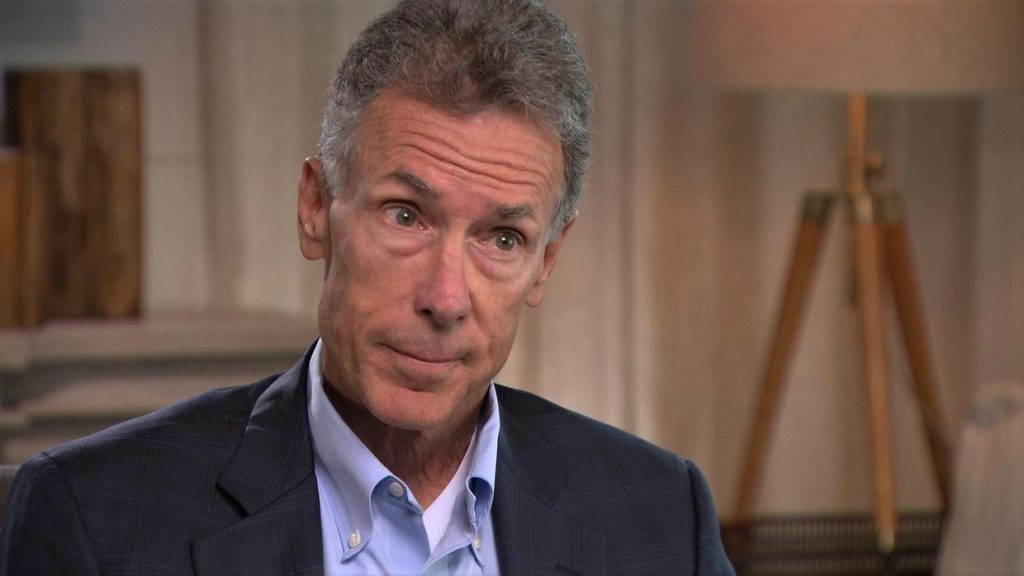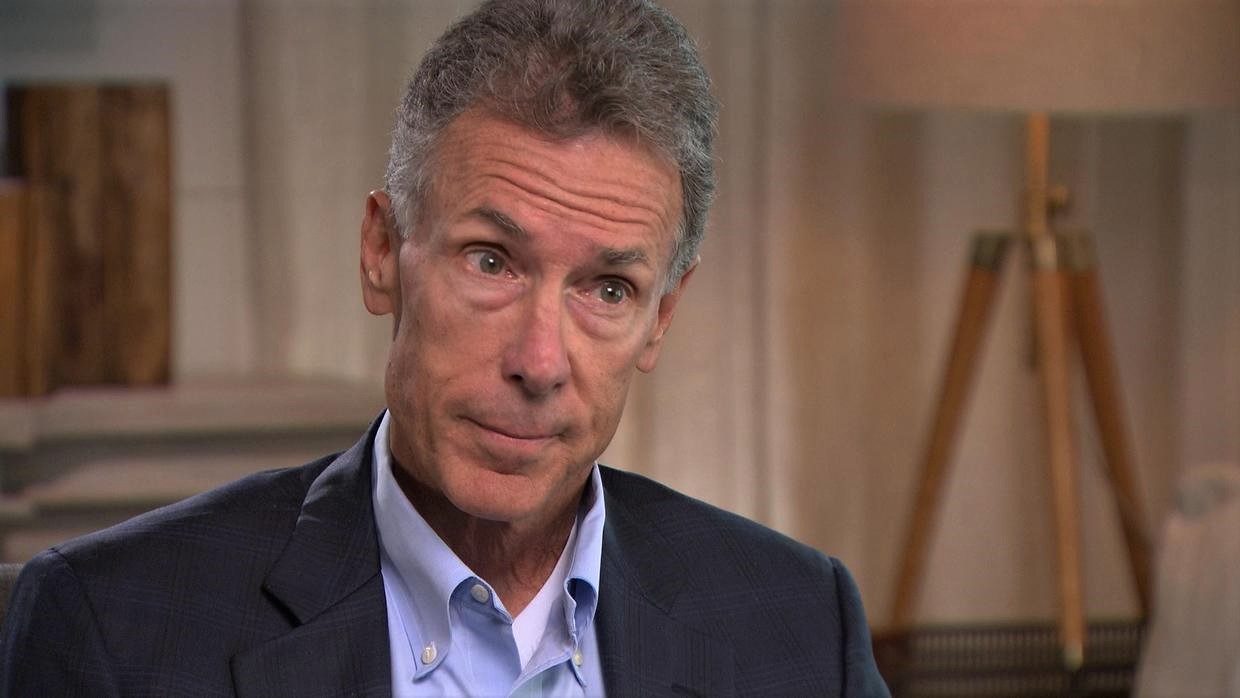There is no longer any doubt that prescription opioids have become a health crisis in America.

According to the National Institute on Drug Abuse, 130 people die each day from overdosing on opioids. “The misuse of and addiction to opioids—including prescription pain relievers, heroin, and synthetic opioids such as fentanyl—is a serious national crisis that affects public health as well as social and economic welfare.
“The Centers for Disease Control and Preventionm,” the NIDA reports, “estimates that the total ‘economic burden’ of prescription opioid misuse alone in the United States is $78.5 billion a year, including the costs of healthcare, lost productivity, addiction treatment, and criminal justice involvement.”
Enter attorney Michael Moore; a man with a track record of successfully prosecuting big issues.
“As Mississippi’s attorney general,” 60 Minutes reporter Bill Whitaker says, “[Moore] engineered the historic 1998 settlement under which Big Tobacco paid billions to address smoking-related health issues. In 2015, he convinced BP to settle multibillion-dollar lawsuits over its huge oil spill in the Gulf of Mexico.
“Now Mike Moore has taken aim at the manufacturers and distributors of opioid painkillers, claiming they should pay for the epidemic of addiction and death that has swept this nation.”
“If we try the Ohio case,” Moore says, “if we win a verdict against these manufacturers and distributors there, it could bankrupt them. It’d put them outta business….
“Ohio is losing $4 billion or $5 billion a year from the opioid epidemic,” Moore explains. “And they’re losing 5,000 or 6,000 people a year from overdose deaths. So when a jury hears the evidence in this case, they’re not gonna award just a couple hundred million dollars. It may be $100 billion. And whoever amongst these companies thinks they can stand up to that? Good luck.”
Moore is just another high-profile attorney copter-dropped into the middle of a crisis looking for a big payday. He’s interested in helping turn the tide on a crisis that is clearly out of control and he’s got a track-record to prove it.
“…when I filed this tobacco case in 1994,” Moore tells Whitaker, “there was nobody that thought that we had a chance to win. We showed up for our first hearing, and in our first hearing, so there was three of us there. On the courtroom on the other side they had 68 lawyers.”
“Despite that early mismatch,” Whitaker says, “within four years Moore had all 50 states lined up against Big Tobacco. He did it partly by going to court, but mostly by going public.”
This was the case brought to the public’s attention by tobacco whistleblower, Dr. Jeffrey Wigand, the man who was director of research at Brown & Williamson, the third largest tobacco company. The case appeared on a segment of 60 Minutes with Mike Wallace.
At the end of Moore’s case, Big Tobacco paid $250 billion in fines.
Now, Moore has set his sights on Big Pharma.
“Everybody’s got some fault,” Moore says. “But we have 72,000 people dying every year. Let’s figure out a way to resolve this thing….
“Purdue Pharma created an environment so that opioid use was okay, Moore continues. “So if you prescribe your patients this drug, there’s less than 1 percent chance they’ll get addicted. That was a lie, a big lie.”
“Can you prove that in court?” Whitaker asks.
“Absolutely,” Moore says. “The Purdue Pharma case is an easy case.”
However, Moore wants to target the drug’s distributors.
“The distributors are saying things like, ‘We’re just truck drivers. We didn’t know where the pills went.’ Of course, they did. There’s a Controlled Substance Act. Controlled Substance Act. You’re supposed to control these pills. And when you don’t, you have a responsibility for it. It– it’s real simple.”
“McKesson,” Moore points out, “you’re the sixth largest company in this country. You’re telling the American public you didn’t have systems in place to adhere to the Controlled Substance Act? Seriously?”
What evidence does Moore and his allies that causes him to feel confident?
“A huge confidential DEA database called ARCOS tracks all transactions involving controlled substances,” Whitaker points out. “This spring, a federal judge in Cleveland who is hearing many of the local lawsuits ordered all that data to be handed over to the plaintiffs’ lawyers.”
One of Moore’s team of lawyers is Burton LeBlanc.
“I can actually tell you which distributor distributed to which particular pharmacy, by year, by volume, and where the pills came from,” LeBlanc says.
“Kermit, West Virginia,” is just one example, Whitaker points out, “a town of just 400 people, where nine million opioid pills were delivered in just two years to a single pharmacy.”
“Did the companies have access to this information?” Whitaker asks.
“It was their data,” LeBlanc says.
Now, Ohio’s governor, Mike DeWine has that data.
“I’m not allowed to talk about the specifics,” DeWine says. “But I will simply tell you it’s shocking. Anyone who was looking at those numbers, as those middlemen were, as these distributors were, clearly, clearly should’ve seen that something was dramatically wrong.”
“If you’ve got walking around sense and you care,” Moore says, “you’re gonna check before you send nine million pills to a little, bitty county in West Virginia or Mississippi or Louisiana or Ohio. You’re gonna check if you care. I don’t think they cared enough. And if they cared enough, maybe we would not have lost 500,000 lives from this problem. It’s– it just– it appalls me.”
And what does Michael Moore get out of all this?
“You made money off tobacco,” Whitaker says.
“Nope, not a penny,” Moore says.
And that’s because he was working as attorney general for the state of Mississippi.
Moore does admit to making “some money” off the BP oil spill.
Nonetheless, he’s out to reverse course on prescription opioids and turn the tide on addiction.
“You know what,” Moore says, “you know what those jurors are gonna do? They’re gonna go in the back room, they’re gonna spend about 30 minutes thinking about it, gonna come back out and bam.”
Comments
Leave a Comment












Once again a great article. Being from Kentucky, I have heard so many horror stories in Appalachia from opioid abuse. Thank you Michael Moore.